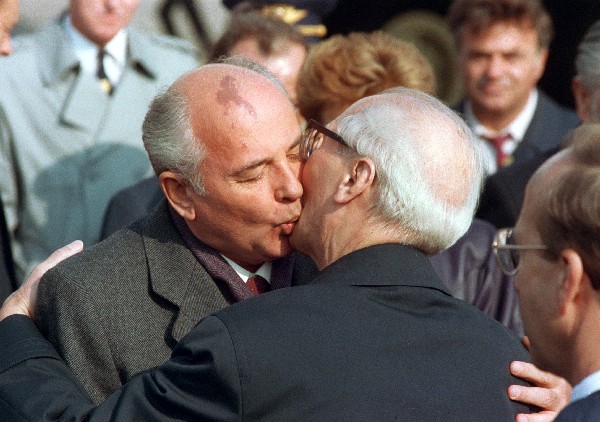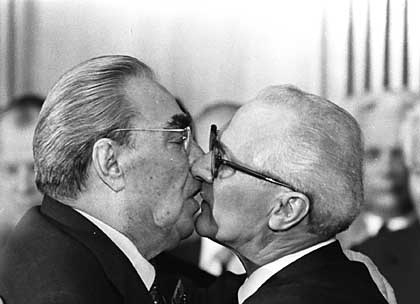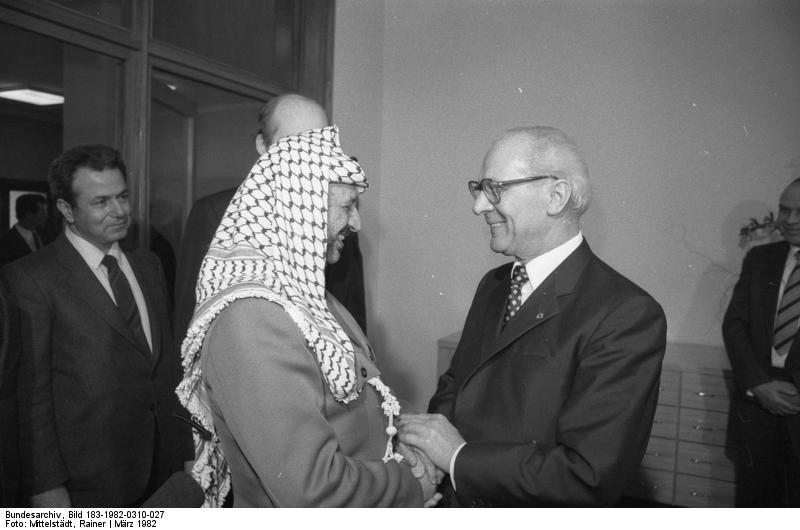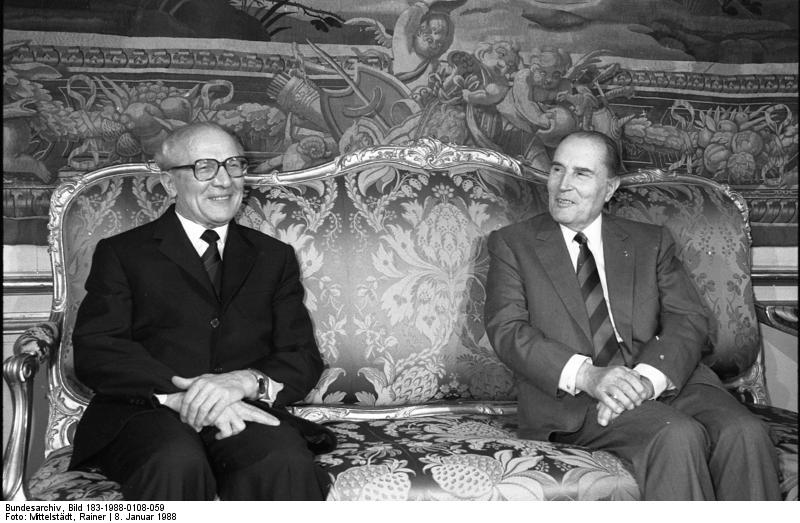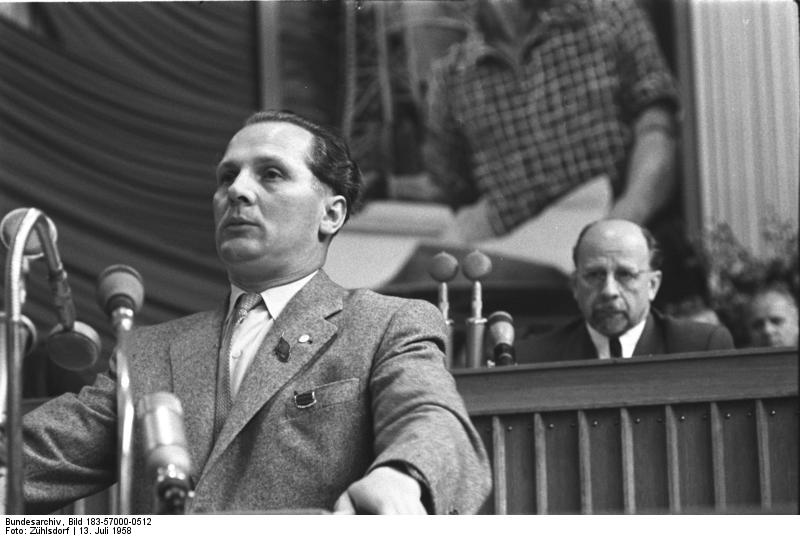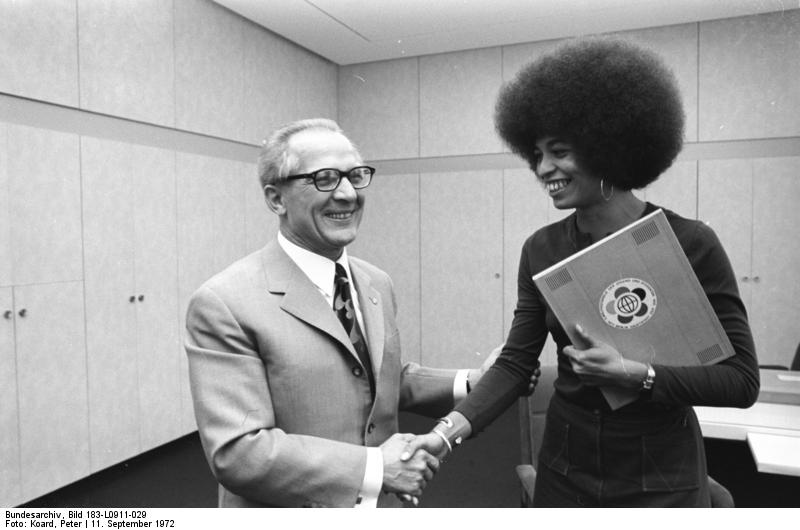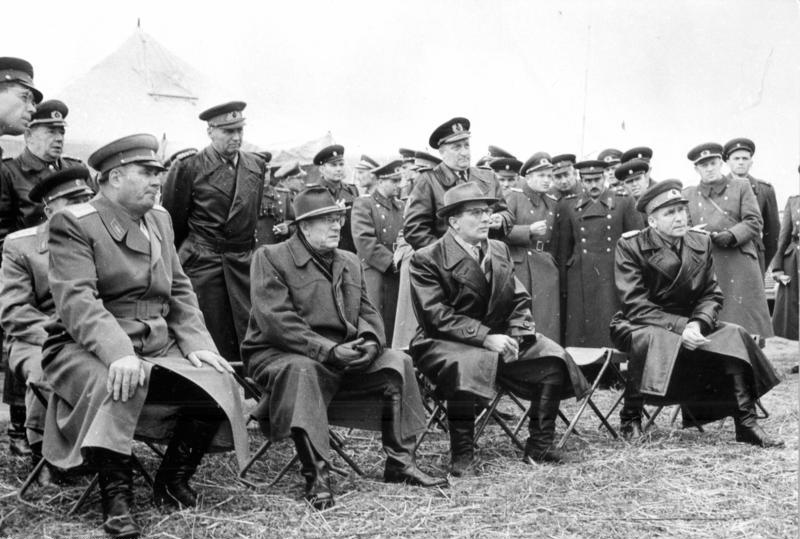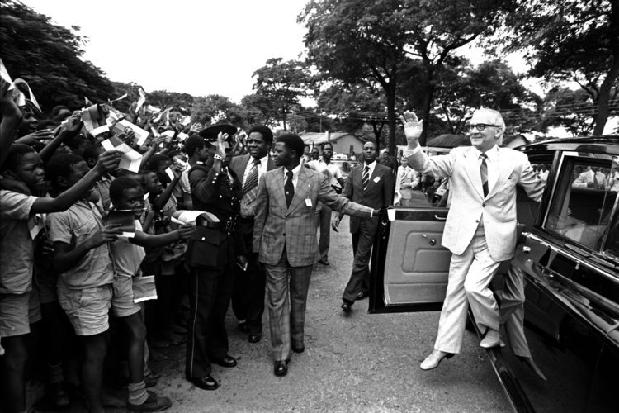<Back to Index>
- Pediatrician Frederick Chapman Robbins, 1916
- Playwright Kjeld Abell, 1901
- Chairman of the Council of State of the German Democratic Republic Erich Honecker, 1912
PAGE SPONSOR
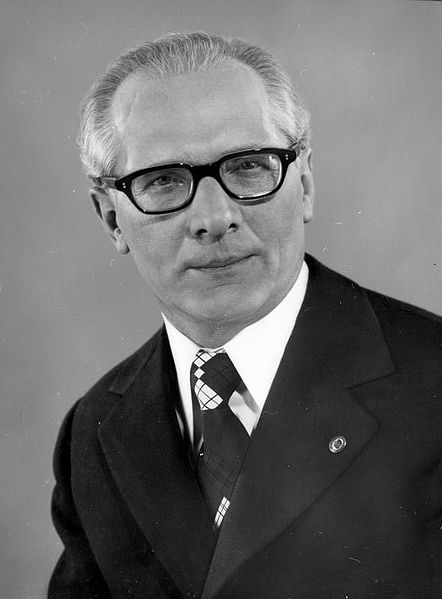
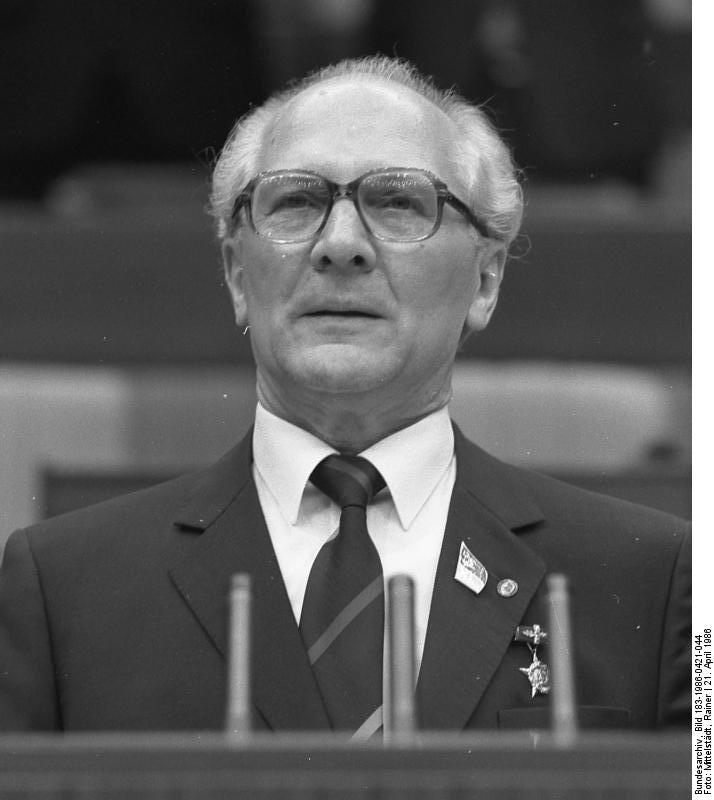
Erich Honecker (25 August 1912 – 29 May 1994) was a German communist politician who led the German Democratic Republic as General Secretary of the Socialist Unity Party from 1971 until 1989, serving as Head of State as well from Willi Stoph's relinquishment of that post in 1976. Following the definite end of the Cold War, Honecker refused all but cosmetic changes and was ousted by the party in late 1989 and removed from power. Following the German reunification he successfully evaded prosecution for human rights abuses committed under his regime, finally settling down with his family in Chile in 1993, dying the following year from liver cancer.
Honecker was born on Max - Braun - Straße in Neunkirchen, now Saarland, as the son of Wilhelm Honecker, a coal miner and political activist, who in 1905 had married Caroline Catharina Weidenhof. There were six children born to the family: Katharina (Käthe), Wilhelm (Willi), Frieda, Erich, Gertrud (b. 1917; m. Hoppstädter), and Karl-Robert.
After World War I, the Territory of the Saar Basin was handed over to France. This change from the strict rule of Baron von Stumm to French military occupation provided the backdrop for what Wilhelm Honecker understood as proletarian exploitation, and introduced young Erich to communism. In 1922 at 10 years old, he joined the Spartacus League, then the Young Communist League of Germany (KJVD), the youth section of the Communist Party of Germany (KPD), in 1926 and joined the KPD itself in 1929. Between 1928 and 1930 he worked as a roofer, but did not finish his apprenticeship. Thereafter he was sent to Moscow to study at the International Lenin School and for the rest of his life remained a full time politician.
He returned to Germany in 1931 and was arrested in 1935, two years after the Nazis had come to power. In 1937, he was sentenced to ten years for Communist activities and remained a prisoner until the end of World War II. At the end of the war, Honecker resumed activity in the party under leader Walter Ulbricht, and, in 1946, became one of the first members of the Socialist Unity Party of Germany (Sozialistische Einheitspartei Deutschlands, SED), which was formed by the merger of the KPD and the Social Democratic Party (SPD) in the Soviet occupation zone of Germany.
Following
the SED victory in the October 1946 elections, Honecker took his place
amongst the SED leadership in the first postwar East German parliament,
the German People's Congress (Deutscher Volkskongress). The German Democratic Republic was proclaimed on 7 October 1949 with the adoption of a new constitution, establishing a political system similar to that of the Soviet Union. Honecker was a candidate member for the secretariat of the Central Committee in 1950; by 1958, he had become a full member of the Politbüro. In 1961, Honecker, as the Central Committee secretary for security matters, was in charge of the building of the Berlin Wall. In 1971, he initiated a political power struggle that led, with Soviet support, to his becoming the new leader, replacing Walter Ulbricht as First Secretary of the SED Central Committee and as chairman of the National Defense Council. In 1976, he also became Chairman of the Council of State (Vorsitzender des Staatsrats der DDR) and thus the de facto head of state. Under
Honecker's leadership, the GDR adopted a programme of "consumer
socialism," which resulted in a marked improvement in living standards
already the highest among the Eastern bloc countries.
More attention was placed on the availability of consumer goods, and
the construction of new housing was accelerated, with Honecker
promising to "settle the housing problem as an issue of social
relevance." Yet, despite improved living conditions, internal dissent was not tolerated. Around 125 East German citizens were killed during this period while trying to cross the border into West Germany or West Berlin. In foreign relations, Honecker renounced the objective of a unified Germany and adopted the "defensive" position of ideological Abgrenzung (demarcation). He combined loyalty to the USSR with flexibility toward détente,
especially in relation to rapprochement with West Germany. In September
1987, he became the first East German head of state to visit West
Germany. In the late 1980s, Soviet leader Mikhail Gorbachev introduced glasnost and perestroika,
reforms to liberalise communism. Honecker and the East German
government refused to implement similar reforms in the GDR, with
Honecker reportedly telling Gorbachev: "We have done our perestroika,
we have nothing to restructure". As
the reform movement spread throughout Central and Eastern Europe, mass
demonstrations against the East German government erupted, most
prominently the 1989 East German Monday demonstrations in Leipzig. Faced with civil unrest, Honecker's Politbüro comrades colluded to replace him. The elderly and ill Honecker was forced to resign on 18 October 1989, and was replaced by Egon Krenz.
After
the GDR was dissolved in October 1990, the Honeckers stayed with the
family of the Lutheran pastor Uwe Holmer. Honecker then stayed in a
Soviet military hospital near Berlin before later fleeing the republic
with Margot Honecker to Moscow, to avoid prosecution over charges of Cold War crimes.
He was accused by the German government of involvement in the deaths of
192 East Germans who tried to leave the GDR in violation of anti - Republikflucht laws. Following the dissolution of the Soviet Union in December 1991, Honecker took refuge in the Chilean embassy in Moscow, but was extradited by the Yeltsin administration
to Germany in 1992. He was officially expelled from the reformed
SED - PDS before the trial opened. He then joined the very small new Communist Party. When
the trial formally opened in early 1993, Honecker was released due to
ill health and on 13 January of that year moved to Chile to live with
his daughter Sonja, her Chilean husband Leo Yáñez, and
their son Roberto. He died of liver cancer in Santiago. Honecker married Edith Baumann in 1950 and divorced her in 1953. They had a daughter, Erika (b. 1950). In 1953 he married Margot Feist and
they remained married until his death. They had a daughter, Sonja, born
in 1952. Margot Honecker served for more than 20 years as the GDR Minister for People's Education. It is claimed that Honecker was addicted to game hunting and
was directly involved in the over - hunting of a number of native game
species. Such was his passion that animals bred and reared in
neighbouring communist countries had to be supplied for his regular
hunting parties. Honecker was an atheist.
